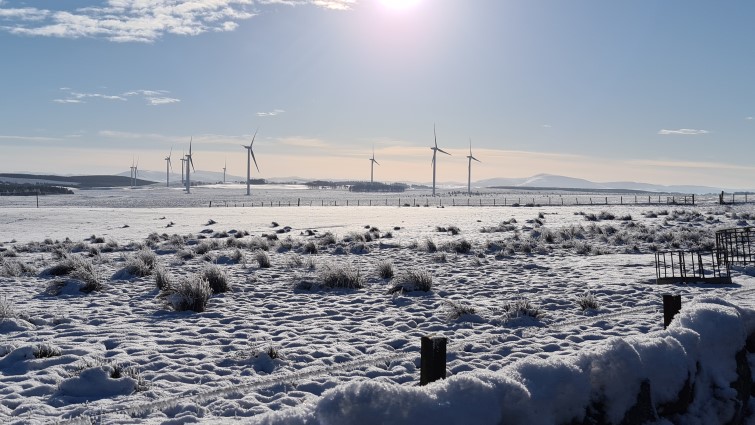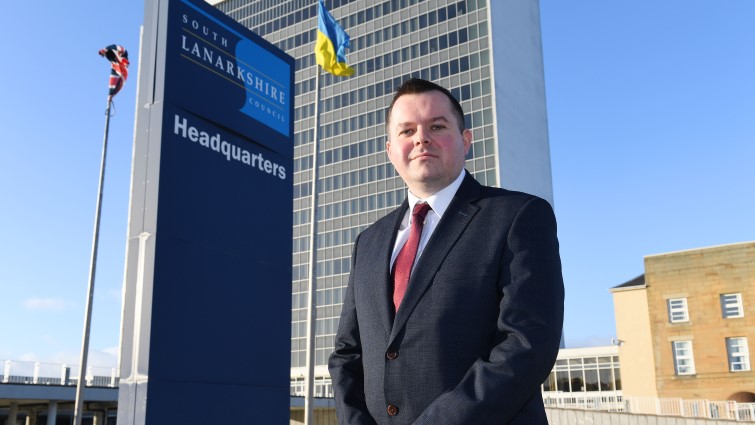New strategy for wind farm money will help rural communities
Published: Friday 9 February 2024

Changes to the ways in which money is redistributed to communities from wind farms have been agreed.
The new arrangements will support a more strategic approach to the use of the funding.
South Lanarkshire Council administer the Renewable Energy Fund (REF), with money paid into it by wind farm operators across the area.
Previously, the large grant available to applicants was 50% of the project costs. This has been increased to 75%, and in some cases 100% of the grant will be available depending on the conditions. This could help with funding applications such as Community Asset Transfers in the future.
Other changes to the REF include an ability to fund revenue projects for up to three years (in addition to capital projects), an increase in the small grants level to 100% funding up to £20,000 and the introduction of a Rural Facilities Sustainability Fund to help communities consider asset ownership and retain facilities for a period of up to three years. The decision was endorsed at a meeting of the Community and Enterprise Resources Committee and will be referred to the Executive Committee for final approval.
Chair of the council’s Community and Enterprise Resources Committee, Robert Brown, said: “The Renewable Energy Fund has been a considerable success in supporting and improving rural facilities like village halls, sports clubs and employment. The REF is steadily increasing in value but it is vital that rural communities are able to maximise the long term benefit of the funds in ways which will support job opportunities, sustain rural towns, villages and communities and build on local facilities.
“The changes agreed by the Committee are important and give rural communities more power and wider options for using this important funding.”
David Booth, Executive Director of Community and Enterprise Resources, said: “In consultation with local people, Community and Enterprise Resources will be able to develop larger, more complex, projects to support and sustain rural communities.
“The new arrangements will also provide further funding opportunities for some of our community groups who are interested in taking on local assets such as community halls.”
23 January 2026
Gaelic opportunities in South Lanarkshire
23 January 2026
Move Your Way January Challenge
23 January 2026
Restored sign of the past points to a better future for villagers
22 January 2026
Roof and window repairs completed at library
22 January 2026
Time to take part in the annual Big Wee Winter Stroll
21 January 2026
Pupils and staff have plenty to celebrate
20 January 2026
Sophie’s winning message for Road Safety
20 January 2026
Duncanrig Secondary School receive prestigious award
19 January 2026
Support available to tackle fuel poverty during the winter
16 January 2026
Charity finds new home thanks to CAT















